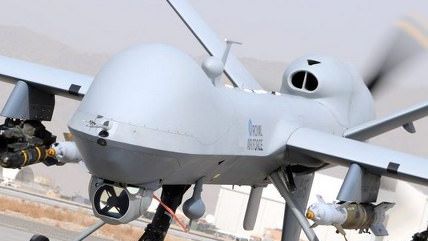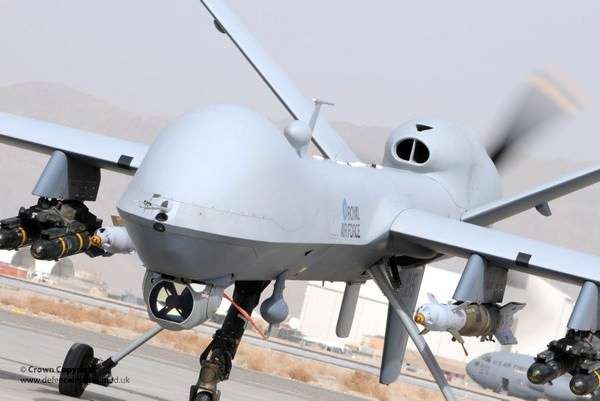US Mulls Drone-Killing Citizen Overseas Suspected of Terrorism
Unnamed country will not permit US military on its soil


The Associated Press reports this morning that the United States is considering whether to use drones to execute an American citizen overseas suspected of planning terrorist attacks as a member of al Qaeda. The problem is not lack of due process, but rather the fact that the unnamed country will not cooperate with the United States in allowing military drones to fly over and bomb people. That creates a little bit of a problem, the AP notes:
The CIA drones watching him cannot strike because he's a U.S. citizen and the Justice Department must build a case against him, a task it hasn't completed.
Four U.S. officials said the American suspected terrorist is in a country that refuses U.S. military action on its soil and that has proved unable to go after him. And President Barack Obama's new policy says American suspected terrorists overseas can only be killed by the military, not the CIA, creating a policy conundrum for the White House.
Two of the officials described the man as an al-Qaida facilitator who has been directly responsible for deadly attacks against U.S. citizens overseas and who continues to plan attacks against them that would use improvised explosive devices.
But one U.S. official said the Defense Department was divided over whether the man is dangerous enough to merit the potential domestic fallout of killing an American without charging him with a crime or trying him, and the potential international fallout of such an operation in a country that has been resistant to U.S. action.
Another of the U.S. officials said the Pentagon did ultimately decide to recommend lethal action.
Officials believe capture is not possible due to the suspect's remote location. The DOJ is currently putting together its case so that President Barack Obama can decide whether to order his death. The AP notes the administration is using the same legal procedure it used to assassinate Anwar al-Awlaki in Yemen in 2011. One notable difference is that that the president has new guidelines for drone strikes that require the strike be necessary to stop future attacks on Americans and that no other alternatives exist, though given that there's no oversight for such determinations outside the executive branch, we're all supposed to trust the president to make the right decision. The Associated Press even notes that the administration could just decide to carve out an "exception" and authorize a CIA strike anyway.
The other, larger difference is that the Yemeni government has permitted drone strikes in their country (though perhaps not for too much longer). One can imagine the potential fallout from a US drone strike in a country that has been refusing to let us in, particularly if bystanders end up getting killed, as tends to happen.
Speaking of which, Jesse Walker noted earlier the launch today of Glenn Greenwald and Jeremy Scahill's new venture. It's about how the National Security Agency uses phone metadata to organize drone strikes and how it results in innocent folks being murdered. What good timing.


Show Comments (135)